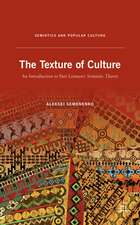The End of the American Avant Garde – American Social Experience Series
Autor Stuart D. Hobbsen Limba Engleză Paperback – 31 dec 1999
"--Choice" "By 1966, the composer Virgil Thomson would write, "Truth is, there is no avant-garde today." How did the avant garde dissolve, and why? In this thought-provoking work, Stuart D. Hobbs traces the avant garde from its origins to its eventual appropriation by a conservative political agenda, consumer culture, and the institutional world of art.
| Toate formatele și edițiile | Preț | Express |
|---|---|---|
| Paperback (1) | 238.58 lei 43-57 zile | |
| MI – New York University – 31 dec 1999 | 238.58 lei 43-57 zile | |
| Hardback (1) | 526.01 lei 43-57 zile | |
| MI – New York University – 31 ian 1997 | 526.01 lei 43-57 zile |
Preț: 238.58 lei
Nou
Puncte Express: 358
Preț estimativ în valută:
45.65€ • 47.79$ • 37.100£
45.65€ • 47.79$ • 37.100£
Carte tipărită la comandă
Livrare economică 31 martie-14 aprilie
Preluare comenzi: 021 569.72.76
Specificații
ISBN-13: 9780814735398
ISBN-10: 0814735398
Pagini: 242
Dimensiuni: 155 x 232 x 24 mm
Greutate: 0.34 kg
Editura: MI – New York University
ISBN-10: 0814735398
Pagini: 242
Dimensiuni: 155 x 232 x 24 mm
Greutate: 0.34 kg
Editura: MI – New York University
Recenzii
"Hobbs provides ample grounds for readers to ponder the interplay between particular movements in the arts and a larger American culture in the late 1950s and early 1960s." --American Historical Review "A significant work for intellectual and cultural historians, this is a tight, . . . focused examination of an important aspect of recent American culture."
--Choice
"Hobbs provides ample grounds for readers to ponder the interplay between particular movements in the arts and a larger American culture in the late 1950s and early 1960s." --American Historical Review "A significant work for intellectual and cultural historians, this is a tight, ... focused examination of an important aspect of recent American culture." --Choice
"Hobbs provides ample grounds for readers to ponder the interplay between particular movements in the arts and a larger American culture in the late 1950s and early 1960s." -"American Historical Review",
--Choice
"Hobbs provides ample grounds for readers to ponder the interplay between particular movements in the arts and a larger American culture in the late 1950s and early 1960s." --American Historical Review "A significant work for intellectual and cultural historians, this is a tight, ... focused examination of an important aspect of recent American culture." --Choice
"Hobbs provides ample grounds for readers to ponder the interplay between particular movements in the arts and a larger American culture in the late 1950s and early 1960s." -"American Historical Review",
Notă biografică
Textul de pe ultima copertă
In the first half of the twentieth century, the United States served as home to an avant garde that existed in contradiction to the consumer culture identified with modern industrial capitalism. Composed of a remarkable group of musicians, writers, and artists, these intellectuals used their talents to express a profound alienation from their culture and a belief that, through the integration of art and life, a new consciousness could be created and American culture thereby transformed. How did the avant garde dissolve, and why? In this thought-provoking work, Stuart D. Hobbs traces the avant garde from its origins to its eventual appropriation by a conservative political agenda, consumer culture, and the institutional world of art. He synthesizes the work of literary, art, and music historians with a fresh examination of primary source materials, giving the reader a unique perspective on the intellectual and cultural history of this country.




















